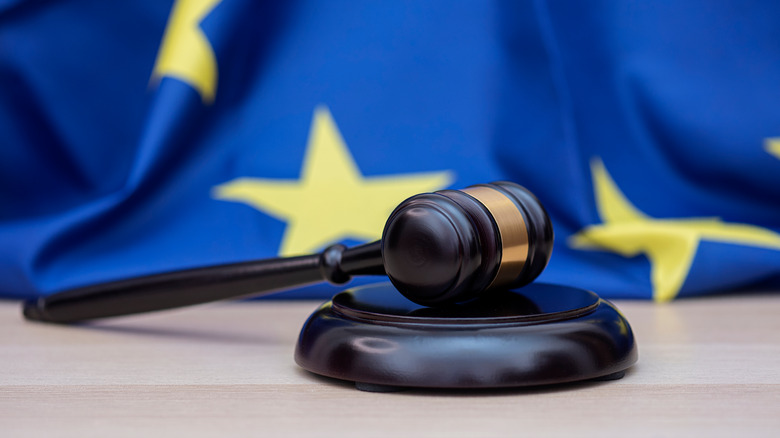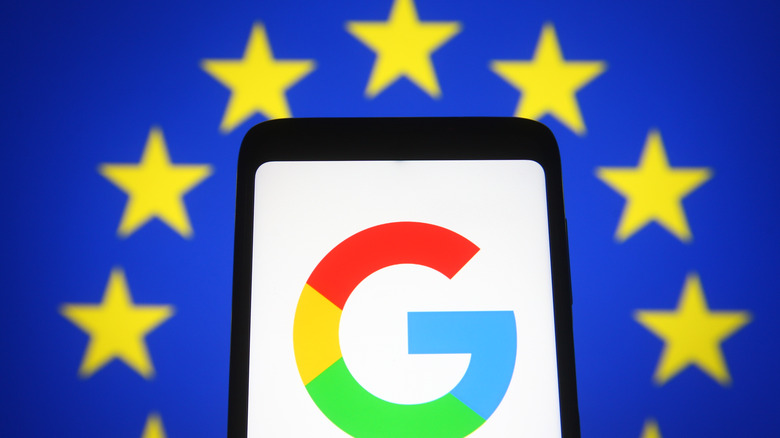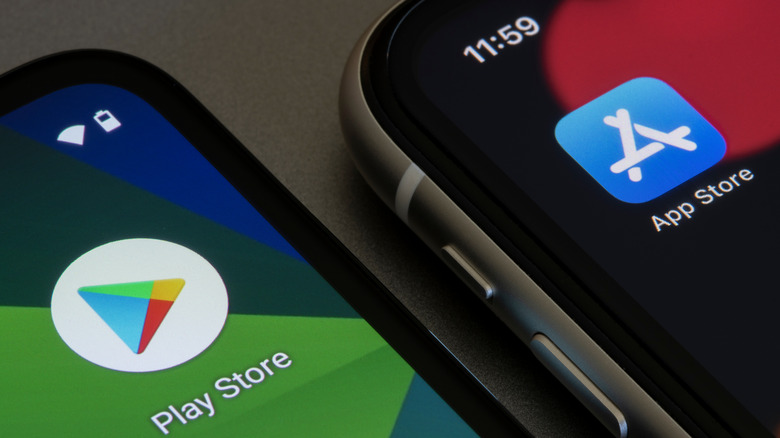What Europe's Digital Markets Act Really Means For Tech Giants
The European Union has long waged war against anti-competitive practices used by tech giants to exploit their dominance, as seen in the EU's antitrust charge against Google. The recently agreed upon new set of regulations will force big tech companies such as Meta (formerly Facebook), Google, Apple, Amazon, and Microsoft to work collaboratively and establish a level playing field. The EU's Digital Markets Act (DMA) will require tech giants to abide by new rules and allow interoperability between social media networks and messaging apps. It also gives users the choice to turn down default options like the default app store on their phone and choose an alternative.
The DMA primarily applies to prominent players called "gatekeepers," which the EU defines as companies with a market cap of more than €75 billion ($82 billion) and more than 45 million monthly users. The regulation requires these gatekeepers to "open up and interoperate with smaller" competitors upon request. In addition, the users must be given the power to "freely choose their browser, virtual assistants or search engines."
Inability to comply with the DMA will result in a fine of up to 10% of a company's total global turnover, which could extend up to 20% if the violations are repeated. The EU can even ban a particular company from operating in the region if it attempts to bypass the laws with deliberate efforts.
DMA streeses interoperability between messaging, social media apps
Interoperability is one of the key facets of the DMA. It requires messaging and social media platforms like Facebook, WhatsApp, Telegram, and Apple's iMessage to allow exchanges with other smaller apps like Signal. Once the regulation is applicable, companies will be given a timeframe between three months and four years to enable interoperability, The Verge reported last week. This should be able to burst iMessage's green bubble finally. The most evident change for European consumers will be that they will no longer be required to use a platform simply because it is the most popular. "Citizens don't necessarily join the service because they think it's the best but because it is the most used and where they find most of their friends or business partners," Marcel Kolaja, a Czech Member of the European Parliament (MEP), said during a press conference (via WIRED).
The DMA also prohibits self-imposing behavior from companies like Google and Apple that force users on their mobile operating systems to use their own apps by default instead of giving them an upfront choice between the available options. Furthermore, users will possess the right to uninstall any preloaded software from their smartphones, laptops, and other devices.
End of big tech's dominance?
The new rules would also prohibit companies like Google and Apple from forcing developers to use only specific payment systems. These restrictions are in the context of the recent confrontations against the heavy commissions charged by the on App Store and Play Store purchases. Popular app providers such as Spotify and Fortnite developer Epic Games have especially opposed the hefty 30% commission on in-app purchases.
But the DMA's impact is not limited to financial penalties. To dissuade large companies from buying their way out of such situations, the EU will also have the right to dictate "behavioral or structural remedies." One example of a company taking the former route is that of Apple, which has continued to pay a weekly fine of €5 million ($5.5 million) in the Netherlands for nine consecutive weeks instead of allowing an alternative in-app payments method. "The Digital Markets Act puts an end to the ever-increasing dominance of Big Tech companies. From now on, they must show that they also allow for fair competition on the internet," Andreas Schwab, a German MEP and one of the leading proponents of the DMA, said during the press conference.
Opposition and criticism from small tech companies
The new act is not without opposition within and outside the EU Parliament. "Interoperability for social media is being pushed into the distant future," Paul Tang told WIRED. MEP Martin Schirdewan expressed disapproval by dubbing it a "scandal" when discussing the uncertain timelines for implementing interoperability on social media. Last month, a group of American lawmakers also showed their opposition to the proposed rules. The group, with senators from multiple parties, suggested the regulations unfairly target American companies while letting firms from China and other countries work unaffected.
Meanwhile, technologists also have voiced concerns about the law cementing "the monopoly of the top dogs, instead of breaking it up." Julia Weiss from the German messaging app Threema told WIRED the DMA might result in lousy privacy practices that could be enforced on users who may no longer remain interested in paying for a more secure service. Frank Karlitschek, Nextcloud founder and CEO, believes the laws are "not strong enough to stop the anticompetitive behavior of the tech giants."



